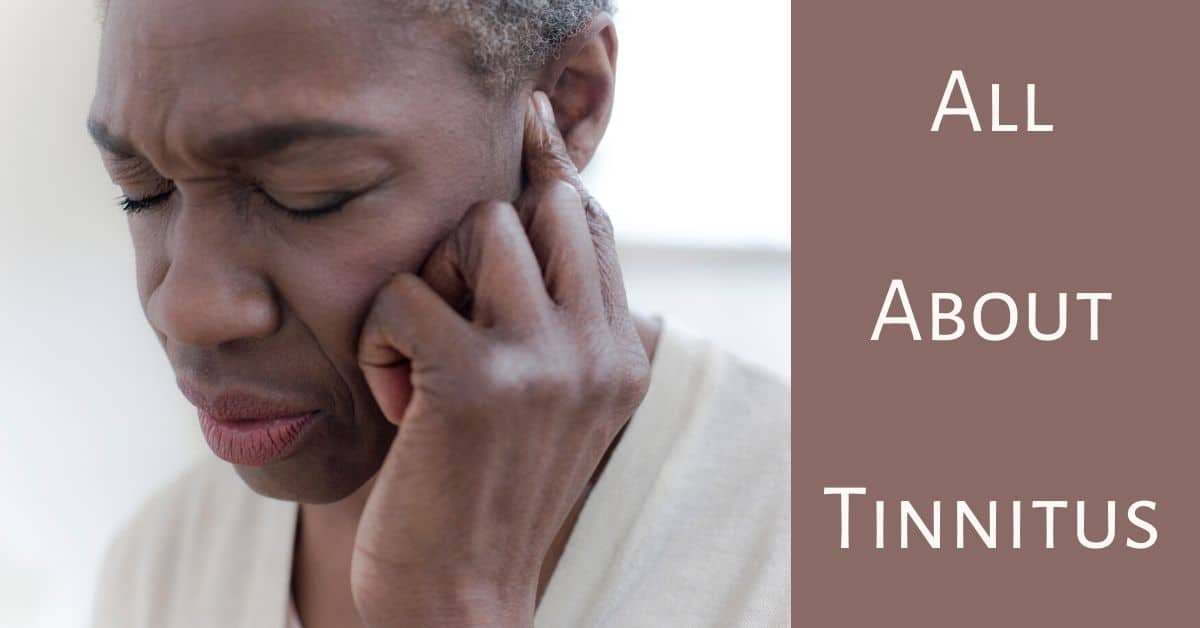Has a buzzing or ringing in your ears been driving you mad recently? You may look for the source but there doesn’t seem to be anything around causing the noise. Yes, the noise is in your head and no; you are not losing your mind. You are just suffering the effects of tinnitus.
What is tinnitus?
Tinnitus shows up as a ringing or buzzing in one or both ears. People have also described tinnitus as a whooshing or humming, but there is no external source. It can be a continuous sound or can come and go. Tinnitus can often show up as age-related hearing loss or can be triggered by excessive noise. Basically, when tiny hairs that transmit sound to your brain in your inner ear become bent or destroyed like instances of old age and noise damage this can trigger cells to “leak” electrical signals through your auditory nerve. Your brain will read these electrical impulses as sounds that show up as tinnitus symptoms.
Who is at risk for tinnitus?
Tinnitus affects people of all ages. While age related hearing loss can cause tinnitus so can excessive noise or an excess of earwax in the ear canal, causing a blockage. Tinnitus will affect 30% of all people but 1 in 8 people will suffer chronic tinnitus. While day-to-day communication is usually not a problem due to tinnitus, it becomes a challenge when experiencing silence. It is in the moments when seeking silence that tinnitus persists.
While damage to the inner ear is a common cause of tinnitus it isn’t the only. Added stress and anxiety or even the common cold can get your ears ringing.
How to deal with your tinnitus
If your tinnitus is persistent then you may want to visit your general practitioner who will refer you to an Ear Nose and Throat doctor (ENT). An ENT will rule out factors that could be making your tinnitus worse such as changes in your ear canal or infection.
While there is no cure for tinnitus there are treatments that can help control how tinnitus affects you. Don’t let tinnitus control your life. It is important to adapt to life with tinnitus rather than spending time fighting it.
Relaxation
Tinnitus can cause anxiety and stress and unfortunately stress only exasperates the symptoms of tinnitus, creating a very frustrating cycle. The best way to break this cycle is to try to relax. Many turn to meditation or yoga as a way to find inner peace and quell their tinnitus symptoms. If your tinnitus is starting to get under your skin, it is important to stop, take deep breaths and allow yourself to become as calm as possible.
Dealing with insomnia
Many people with tinnitus struggle with falling asleep or staying asleep. This is another instance where the stress and anxiety of missing sleep creates so much stress that it only makes the problem worse. It is important to stay calm by creating a good environment to get the best rest possible. Many people rely on meditation before bedtime to get their tinnitus under control. It may also be helpful to attempt to mask the sound using a white noise machine or even relaxing music.
Cognitive Behavioral Therapy (CBT)
Used to help deal with depression, anxiety disorders, mental illness and more CBT is also used to lessen the severity of tinnitus. CBT helps to identify unhelpful ways of thinking and illuminate healthier ways to cope. For instance when you respond to your tinnitus with negative emotions this further amplifies the effects. When you can identify and change this response to tinnitus you can help to lower the symptoms
Hearing aids help with tinnitus
Hearing loss tends to sneak up on us, as the symptoms develop over time. While many cases of tinnitus are not caused by hearing loss, so many cases are. If you are finding that you are having trouble hearing the people in your life, hearing aids can help you regain lost hearing. Not only that but using hearing aids can help reduce the stress and strain that can amplify tinnitus. Take the leap to schedule a hearing test today and work towards an end of tinnitus in your life.

